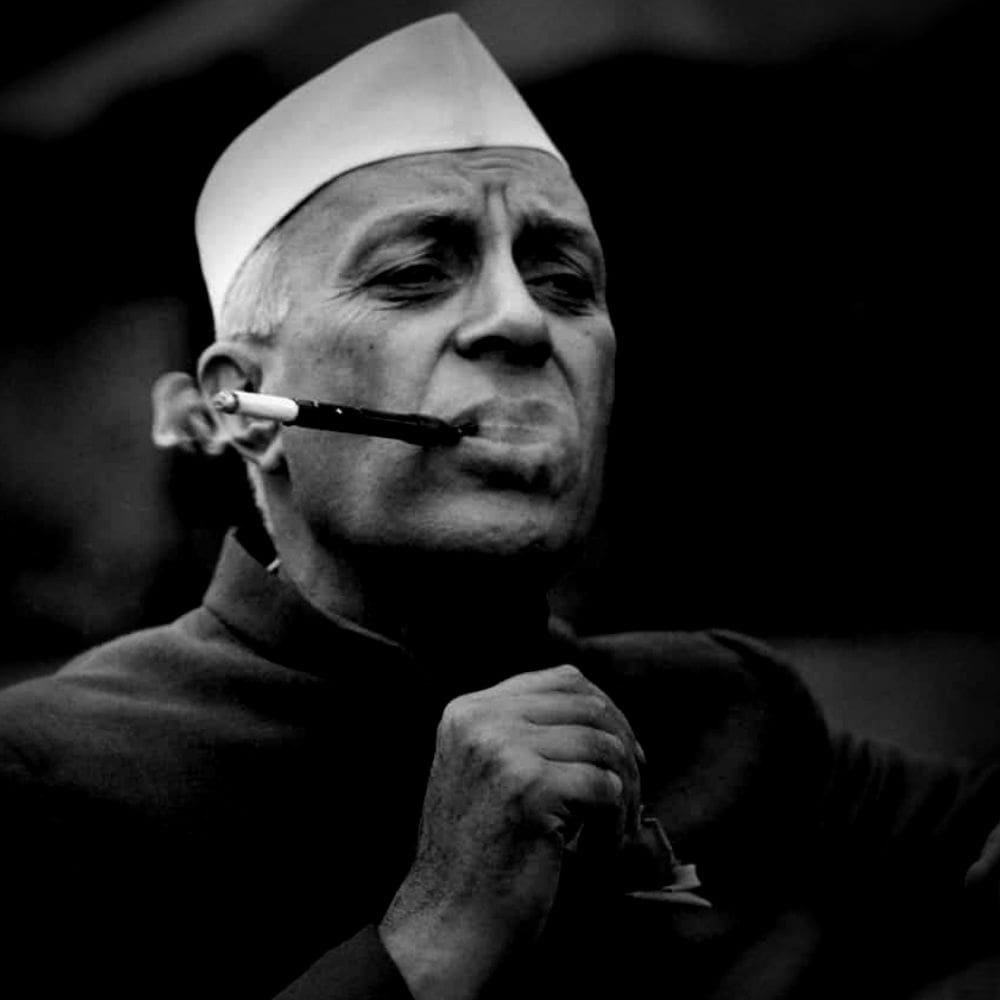PROMOTING INCOMPETENTS & SYCOPHANTS
Servitude debases men to the point where they end up liking it.
—Luc de Clapiers
Nehru’s hubris was such that he thought he was the wisest person around who knew best. He, therefore, looked for “Yes-men”. Those who would toe his line, do his bidding, and even anticipate his likes and dislikes, and act accordingly.
The single brain-activity of the people who meet in Congress is to find out what is in Jawaharlal’s mind and to anticipate it. The slightest attempt at dissent meets with stern disapproval and is nipped in the bud. —Rajaji
Blunder–105 :
PROMOTING INCOMPETENTS & SYCOPHANTS
Wrote MO Mathai: “Barring a few exceptions, more especially after Sardar Patel’s death, Nehru’s colleagues were not men who would frankly speak out in his presence. Many were tongue-tied before him, some were ever anxious not to displease him, and some tried to find out in advance what was likely to please him. Nearly all had an awe of him. The net result, was that Nehru was not well served by his colleagues.”
No wonder the frank, forthright and competent were sidelined. This became glaringly obvious in the way Nehru and Menon played favourites in the army, politicised postings and promotions, and awarded top positions to those who ultimately let India down in the 1962 India-China war. Please check Blunder#38.
The position was such in the first general elections in 1952 that whoever got a Congress ticket was likely to win. It was said that even a lamp-post carrying a Congress ticket would win. Gandhi had desired after independence that honest, competent and deserving persons from varied spheres willing to serve the country must be inducted. 1952 was a golden opportunity to identify and induct such persons. But, did Nehru do so? No. Nehru had a free hand. He herded-in as many loyalists and sycophants as he could.
Maulana Azad had commented: “We are still feudal, but what has distressed me is that many good persons have been denied tickets because the trusted courtiers had labelled them as anti-Nehru.”
Nehru even saw to it that Dr BR Ambedkar—by far the most erudite and competent—was defeated! Expectedly, the 1952-election results threw up a large band of Congress MPs and MLAs who were courtiers, sycophants and hangers-on.
Nehru promoted and consulted people like Krishna Menon, about whom Khushwant Singh who had worked in the Indian High Commission in London under him had the following to say in his autobiography ‘Truth, Love and a Little Malice’:
“I had briefly met Krishna Menon in my college days and had not detected any signs of genius [as claimed by some] in him. He was a sour- tempered barrister without briefs and spent his energies building up his India League and paying court to Pandit Nehru whenever he was in England. His appointment as High Commissioner was badly received in India and the Indian community in England as gross favouritism. “…he set up many sub-organisations of his India League and got money from rich Indians and his English friends as donations to his organisations; in return, he gave the latter contracts for supply of arms to India. He had no scruples in business matters. He was also a congenital liar and regarded truth as good enough for the simple-minded and lying as the best exercise for the mind.
“…Why Menon got where he did under the patronage of Pandit Nehru remains, and probably will remain, unexplained.
“…General Shiv Varma summed him up aptly when he said, ‘Menon was a bachelor, the same as his father.’”
Wrote Louis Fischer: “Without free criticism and potent opposition, democracy dies. Without political criticism and opposition, a nation’s intellect, culture and public morality stagnate; big men are purged and small men become kowtowing pygmies. The leaders surround themselves with cowards, sycophants and grovelling yes-men whose automatic approval is misread as a tribute to greatness.”
David Lloyd George, the British PM during 1916-22, had advised Winston Churchill : “It is important for a Prime Minister to be surrounded by people who could stand up to him and say, not once but thrice, ‘No’.” One wonders if it was Nehru’s hubris, dictatorial mindset, overt arrogance, or covert inferiority complex that made him shun stalwarts like Patel, Ambedkar, and embrace sycophants, grovelling pygmies, and lesser persons.
All those who opposed Nehru were disparaged, labelled non-secular and communal, or pro-rich, or fascists, and weeded out. Gradually, a coterie around Nehru vigorously spread his defective pseudo-secular, anti-Hindu, poverty-perpetuating socialistic claptrap, and sidelined all those who refused to toe Nehru’s line. Leaders who differed exited, and leaders who remained became parrots, bereft of individuality and fresh ideas. Commented DP Mishra: “Gandhiji made heroes out of clay, but under Pundit Nehru’s leadership they are being turned into corpses.”


